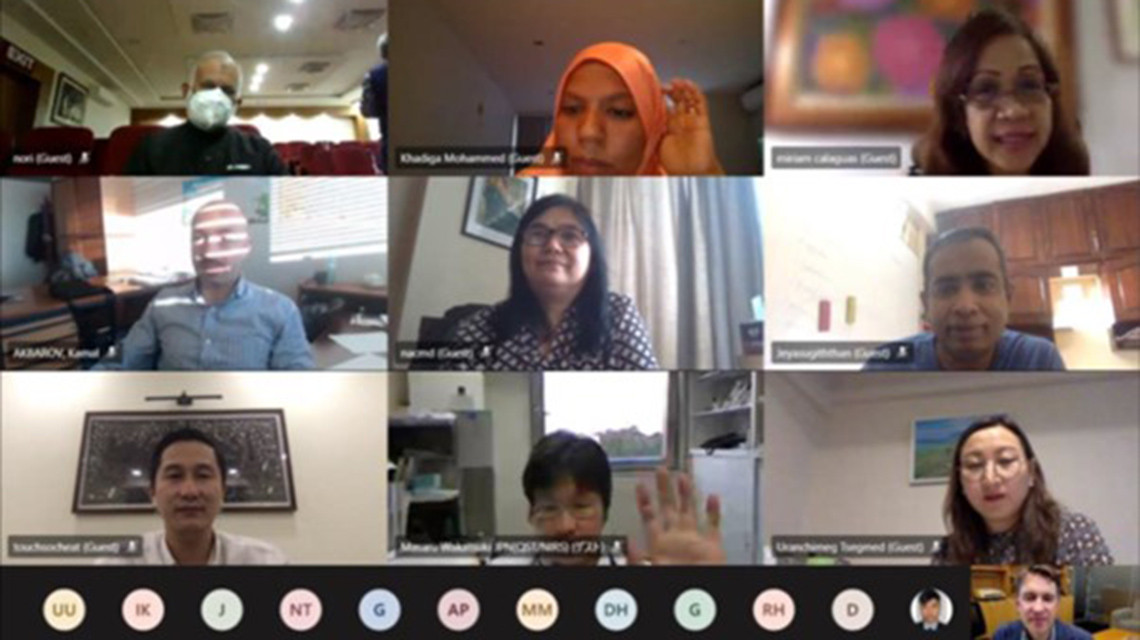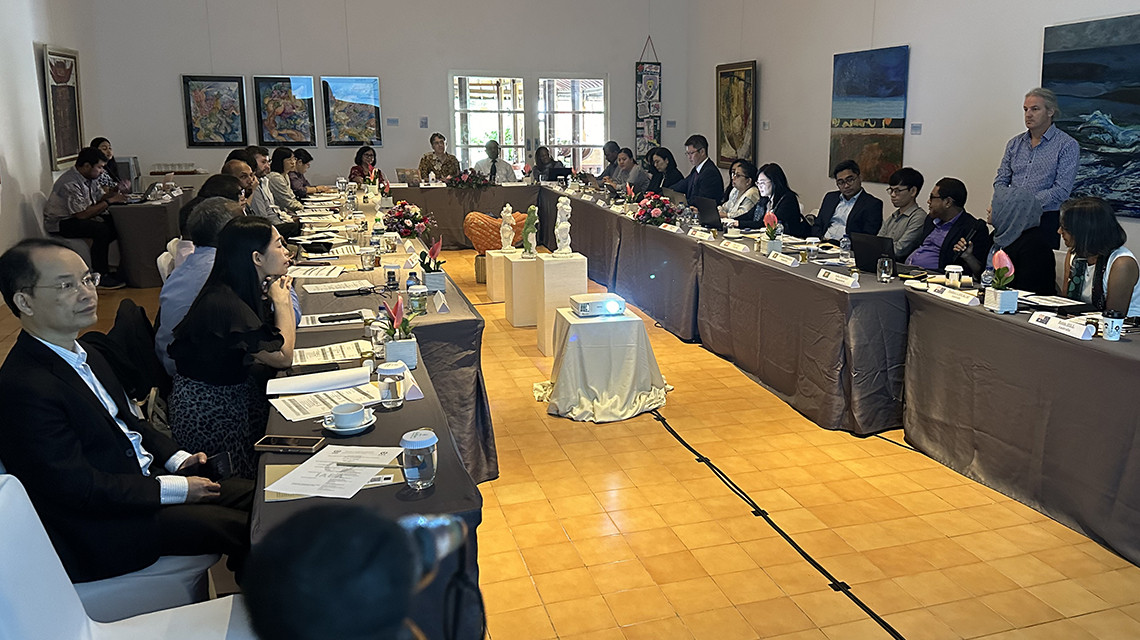An IAEA programme to provide virtual oncology expertise to cancer patients in developing countries has shown to be a wide success - engaging over 500 radiotherapy professionals from 19 countries and helping hospitals improve care for many patients, according to a comprehensive review.
In November last year, more than 30 cancer experts from across the Asia and the Pacific region gathered in Bali, Indonesia to conduct a comprehensive review of the three year implementation of virtual 'tumour boards'. Such boards offer a means of pooling oncological expertise and resources from around the region to improve clinical decision making and better address cancer care challenges.
Virtual tumour boards (VTBs) are online versions of traditional tumour boards - meetings that in high- income countries are mostly held within the same oncology facility, where experts from across the medical spectrum meet on a regular basis to review cancer cases and treatment plans.
"The uniqueness of each specific cancer case - caused by factors such as the precise location and extent of a cancer, a patient's existing medical conditions or social circumstances can complicate treatment decisions," said Sandra Ndarukwa, Associate Education Officer in the Division of Human Health, IAEA Department of Nuclear Sciences and Applications. Leveraging insights from across medical disciplines, tumour boards allow new and complex cases to be peer reviewed by a range of experts, resulting in better treatment planning. "Ultimately, they contribute to an enhanced quality of individual patient care," she added.
Holding tumour boards in low- and middle-income countries (LMICs) where oncology centres often lack the required levels of staffing and resources can be challenging. In response, the Asia-Pacific Radiation Oncology Network (ASPRONET) has been experimenting with VTBs as a means of supporting cancer care decisions in the region.
Over the course of three years, these virtual sessions actively engaged over 500 radiotherapy professionals from 19 countries, supporting clinical decision-making for over 140 cases. Their launch coincided with the beginning of the COVID-19 pandemic, amplifying the benefit of digital platforms in enhancing patient care and professional development. By bringing together health professionals from so many different countries, they are a testament to the power of South-South and South-North collaboration in addressing regional challenges.
"Despite obstacles caused by different time zones and languages, ASPRONET has emerged as a crucial resource in enhancing cancer decision making and treatment planning in the region," said Dr Iain Ward, Radiation Oncologist at Christchurch Hospital, New Zealand and Project Lead Country Coordinator for the IAEA. "For this reason, we have asked the IAEA to continue supporting the initiative through the means of its technical cooperation programme," he added.

Medical professionals from around the world can collaborate to find the best cancer care plan for a patient via Virtual Tumour Boards.
How the project works in practice
VTBs are held each month on a video conferencing platform provided by the IAEA - thereby facilitating anonymous discussions. Prior to each session, a call for cases is circulated among designated National Project Coordinators. Clinical data is presented in standardized templates containing diagnostic images, treatment plans, and expanded considerations for COVID-19 and other infections.
A multinational project leadership team (including IAEA experts) oversees discussions spanning radiation dosage, treatment strategies, toxicity mitigation, and systemic therapy utilization across several different cases, including head and neck cancer, sarcoma, breast cancer and central nervous system tumours. Many of the over 140 cases reviewed so far were childhood and female cancers, highlighting the necessity of support for these vulnerable groups.
Continual improvements help VTBs meet participant needs. After the first 12 months, for example, educational sessions were introduced, including sessions addressing the needs of radiation therapists and radiation oncology medical physicists.
Moving forwards, the goal is to expand ASPRONET's reach - particularly for professionals based in Less Developed Countries and Small Island Developing States.
"Through ASPRONET, our objective is to reach out and help patients living with cancer in the Asia and the Pacific region to access the level of cancer care they deserve," said Gashaw Wolde, Acting Director and Section Head in the Division for Asia and the Pacific at the IAEA's Technical Cooperation Department.
Having proven their worth in bringing oncology professionals together in Africa, the Eastern Caribbean and the Asia and the Pacific region, plans are underway to introduce virtual tumour boards to Latin America and French-speaking countries in Africa as well.
The scale of the challenge
Cancer is a leading cause of death worldwide, accounting for nearly 10 million deaths in 2022, which is close to one out of every six deaths. Predictions indicate a staggering surge to 17 million cancer related deaths by 2045 (Globocan 2022), of which a majority are expected to take place in low- and middle-income countries (LMICs). Despite this inequity, cancer research is currently conducted overwhelmingly in high income countries, but there is a limited transferability of knowledge gained in high income countries to health systems and populations in LMICs.
Within LMICs, disparities in cancer care manifest through diverse local treatment policies that are not always in line with internationally accepted standards. This can affect radiotherapy indications; how it is combined with surgery and chemotherapy; dose prescriptions and fractionation schedules (how the dose is divided across the course of treatment); and treatment plans.
The IAEA has been helping LMICs to address cancer, and therefore work towards Sustainable Development Goal 3 and others, for over 60 years by channelling resources and expertise through its technical cooperation programme - the IAEA's primary mechanism for transferring nuclear technology and knowledge to its member countries.

ASPRONET experts review the success of the VTB project and discuss future plans. (Photo: G. Wolde/IAEA)






